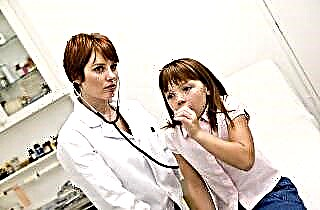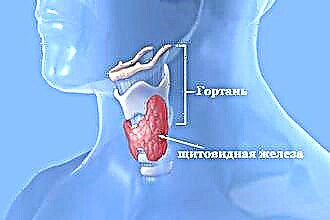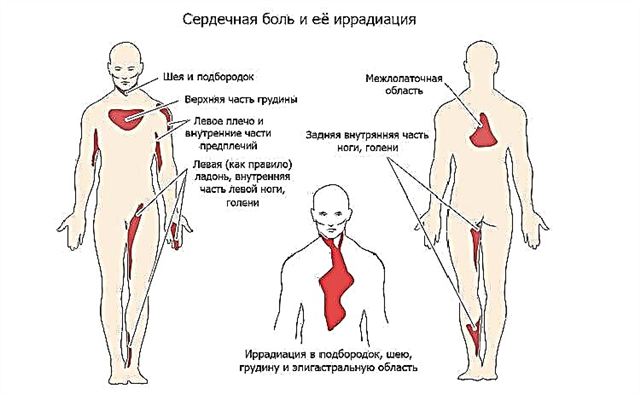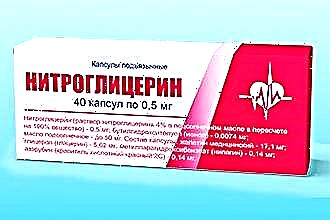Cough in children is mostly viral or allergic. When a virus or allergen penetrates the bronchi, their mucous membrane becomes inflamed. The body is actively fighting, producing mucus, which should neutralize the virus. And expectoration is an attempt to remove the mucus accumulated in the lungs outside.
The appearance of a cough in a child, of course, worries his parents. They are especially confused by the absence of any other symptoms - fever, redness in the throat, weakness, runny nose. What then happens to the baby? Both Komarovsky and a number of other pediatricians consider a cough in a child without a fever as a signal that some kind of ailment is developing in the child's body. It remains only to find out what kind of disease we are dealing with.
Causes of cough in children without fever
 A baby's cough can be caused by both an infection and an allergic reaction. However, if the temperature does not rise at the same time, there is no runny nose, which means that the option with an infection disappears. Then only the allergy remains. If earlier allergic reactions to something for the child were not noticed, the parents do not even suspect about the possibility of their occurrence. Unfortunately, today most people do not consider it necessary to control the humidity level in the children's room. The use of radiators and air conditioners to heat the room significantly dehumidifies the air. By the way, excessively dry air is one of the causes of coughing in children.
A baby's cough can be caused by both an infection and an allergic reaction. However, if the temperature does not rise at the same time, there is no runny nose, which means that the option with an infection disappears. Then only the allergy remains. If earlier allergic reactions to something for the child were not noticed, the parents do not even suspect about the possibility of their occurrence. Unfortunately, today most people do not consider it necessary to control the humidity level in the children's room. The use of radiators and air conditioners to heat the room significantly dehumidifies the air. By the way, excessively dry air is one of the causes of coughing in children.- First of all, Dr. Komarovsky, when he talks about coughing, advises paying attention to a runny nose. The consistency of blood can also be determined by the consistency of the snot. If the coughing up sputum is liquid, the blood will also be quite liquid. As the blood becomes thicker, the sputum becomes more viscous. To achieve blood thinning, parents should often give water to a coughing child.
- If we are talking about a cough without a fever, the cause of its occurrence may lie in ordinary household dust. It tends to accumulate in pillows and soft toys for children. How to treat such a cough? In this case, you will need to get rid of all irritants and do wet cleaning in the child's room every day. In addition, the baby should be switched to a sparing diet in the diet.
- A low-temperature cough may indicate the initial stage of the development of a cold or infectious disease - for example, bronchitis or whooping cough. There is also a residual cough - it persists for a certain time after the disappearance of all other symptoms.
 One of the likely reasons for a child to have a cough without any accompanying symptoms is the ingress of a foreign body into the upper respiratory tract. Sometimes it can even be found in the lower parts of the bronchi. During inhalation, the mucous membranes are irritated, and a cough appears - as a protective reflex.
One of the likely reasons for a child to have a cough without any accompanying symptoms is the ingress of a foreign body into the upper respiratory tract. Sometimes it can even be found in the lower parts of the bronchi. During inhalation, the mucous membranes are irritated, and a cough appears - as a protective reflex.- Dry cough in a child and Komarovsky and other pediatricians also cause reflux disease of the esophagus. With it, the body temperature remains normal, and there is no runny nose. A dry cough provokes gastric juice, which is thrown into the respiratory system.
How to treat correctly
As already mentioned, cough is not a separate disease, but one of the symptoms. Thus, it is necessary to treat not only him, but the whole disease.
- Children often cough when they have a cold. This means that all efforts should be directed to the fight against colds, not forgetting to facilitate expectoration at the same time. It is necessary that the sputum is released from the bronchi to the maximum. The easiest and most effective way to achieve this is through drinking plenty of fluids. Also, full treatment of cough in children is impossible without monitoring the state of the air in the nursery. The humidity level must be kept within the normal range.
- If a child coughs, he is not allowed out of the house. And this is a gross mistake. If your body temperature is normal, walking outside will greatly speed up your recovery. When the baby is actively moving in the fresh air, it prevents the mucus from drying out and helps the phlegm to pass away.
 If you need to relieve a child's cough, you should pay close attention to how he breathes. With a stuffy nose, the baby constantly inhales air through his mouth. And this leads to an aggravation of the situation - an increase in the viscosity of the snot and, accordingly, an increase in coughing. Hence the conclusion: the nose must be clean all the time. To cleanse your nose, you must regularly rinse it with saline or sea water. If the nose usually clogs up at night and the child has difficulty breathing, you can drip your nose with special drugs to narrow the blood vessels right before bedtime.
If you need to relieve a child's cough, you should pay close attention to how he breathes. With a stuffy nose, the baby constantly inhales air through his mouth. And this leads to an aggravation of the situation - an increase in the viscosity of the snot and, accordingly, an increase in coughing. Hence the conclusion: the nose must be clean all the time. To cleanse your nose, you must regularly rinse it with saline or sea water. If the nose usually clogs up at night and the child has difficulty breathing, you can drip your nose with special drugs to narrow the blood vessels right before bedtime.
So, to summarize - how to treat a cough that is not accompanied by a fever? First of all - to soften it, secondly - to help the body get rid of snot.
This will require:
- give your child a lot to drink;
- maintain normal temperature (about 18-20 degrees) and the level of humidity in the room where the baby is;
- walk with the baby so that he breathes fresh air;
- give the child mucolytics to stimulate expectoration.
Dealing with a wet cough
 Despite the fact that a child's cough is not uncommon today, one must be able to distinguish a simple cough from the onset of some disease. In particular, a wet cough indicates that a crumb of infection has entered the body.
Despite the fact that a child's cough is not uncommon today, one must be able to distinguish a simple cough from the onset of some disease. In particular, a wet cough indicates that a crumb of infection has entered the body.
Even if your child does not have a fever, in no case should you take medications on your own. It is necessary, first of all, to consult a pediatrician. The children's doctor will find out the real cause of the wet cough. But if you come to an appointment, and he immediately writes out a prescription for the purchase of antibiotics, change the doctor. A wet cough in a child, not accompanied by a fever, is inappropriate to immediately treat with "heavy artillery" - taking antibiotics.
To make the accumulating sputum go away faster and much more efficiently, as a rule, narrowly targeted mucolytic drugs are prescribed (for example, "Bromhexine" or "Mukaltin").
In addition, when a child coughs, it is necessary to drink vigorously. Children will be happy with cranberry juice, tea with raspberry jam, sweet compotes with licorice root and thyme. If the body temperature is within normal limits, you can grind and steam the baby's legs.
If the child starts to "bark"
If parents hear a barking cough in a child, treatment should be started immediately. Otherwise, the disease can turn into an acute, and then into a chronic form.
 According to Komarovsky, it is not the barking cough itself that needs to be treated separately, but the ailment that provoked the onset of this symptom. Medicines and other methods are used for treatment. If a child begins to "bark" because of an allergy, it is extremely important to identify the allergen in a timely manner and eliminate it. If you cannot determine the allergen on your own, you need to be examined by a doctor, who, based on the results, will prescribe a suitable antihistamine medicine. In winter, give your baby warm drinks regularly. This is to keep the throat and larynx from drying out. And Dr. Komarovsky strongly advises getting a humidifier for the nursery.
According to Komarovsky, it is not the barking cough itself that needs to be treated separately, but the ailment that provoked the onset of this symptom. Medicines and other methods are used for treatment. If a child begins to "bark" because of an allergy, it is extremely important to identify the allergen in a timely manner and eliminate it. If you cannot determine the allergen on your own, you need to be examined by a doctor, who, based on the results, will prescribe a suitable antihistamine medicine. In winter, give your baby warm drinks regularly. This is to keep the throat and larynx from drying out. And Dr. Komarovsky strongly advises getting a humidifier for the nursery.
If the cause of the barking cough is an acute form of laryngitis and the child, coughing, suffocates, call a doctor immediately. After all, the development of laryngeal edema is a very dangerous condition for a baby. Laryngospasm is removed with the drugs Loratadin and Desloratadin. Pharyngitis is treated with antibiotics and medicines to relieve throat irritation (Ingalipt).
Before sending the child to bed, so that he does not wake up from a cough, you need to give him "Mukaltin" or "Codelac". If the doctor diagnosed the baby with bronchitis or tracheitis, then treatment with mucolytics is carried out - "Bromhexin", "Lazolvan" or "Ambrobene".
The main task is to translate a dry cough into a wet one, which indicates a speedy recovery. For this purpose, drugs are used to dilute sputum and improve its expectoration.
If the infection is of bacterial origin, antibiotics (Augmentin and Cephalexin) are added. In addition, herbal syrups made on the basis of marshmallow or plantain are good for barking coughs.
Folk recipes
 If the baby does not have a fever, some traditional medicine will be effective. Here are a couple of examples.
If the baby does not have a fever, some traditional medicine will be effective. Here are a couple of examples.
- To soften a cough, you can use warm milk mixed with mineral water in a 1: 1 ratio. An alternative version of this drug is to mix warmed milk with a teaspoon of natural honey and add a small slice of fresh butter there. This remedy will soothe an irritated throat, and for a while, the cough will stop annoying the child.
- A good remedy is radish juice. It should be given to the baby by a teaspoon every three hours. How to get this juice? You can divide the radish in half, pour a little honey on each half and sprinkle a little granulated sugar. Then place it in a deep plate so that the radish is at an angle. Literally in an hour, the healing juice can be drained and consumed as directed. Remember that children should not be given it up to a year.
Post factum
 Finally, it should be emphasized once again that the fight against one cough is not only meaningless, but also dangerous for the child. The indiscriminate intake of different drugs and the change of drugs, if the result from their use does not appear instantly, are absolutely unreasonable actions that are harmful to the health of the baby. After all, it may turn out that you only need to cover the batteries or remove a new flower from the room, check if the baby is allergic to wool in the blanket.
Finally, it should be emphasized once again that the fight against one cough is not only meaningless, but also dangerous for the child. The indiscriminate intake of different drugs and the change of drugs, if the result from their use does not appear instantly, are absolutely unreasonable actions that are harmful to the health of the baby. After all, it may turn out that you only need to cover the batteries or remove a new flower from the room, check if the baby is allergic to wool in the blanket.
In any case, it is necessary to find out the cause of the symptom, and only then to comprehensively influence it. This is the only way to cure the cough and the disease that caused it. Do you want to get additional bonuses in a virtual gambling club without real investments? Then download JOY casino, computer or other pc device and register there. For this, the operator will provide you with generous rewards. Plus, you can play faster and without ads.

 A baby's cough can be caused by both an infection and an allergic reaction. However, if the temperature does not rise at the same time, there is no runny nose, which means that the option with an infection disappears. Then only the allergy remains. If earlier allergic reactions to something for the child were not noticed, the parents do not even suspect about the possibility of their occurrence. Unfortunately, today most people do not consider it necessary to control the humidity level in the children's room. The use of radiators and air conditioners to heat the room significantly dehumidifies the air. By the way, excessively dry air is one of the causes of coughing in children.
A baby's cough can be caused by both an infection and an allergic reaction. However, if the temperature does not rise at the same time, there is no runny nose, which means that the option with an infection disappears. Then only the allergy remains. If earlier allergic reactions to something for the child were not noticed, the parents do not even suspect about the possibility of their occurrence. Unfortunately, today most people do not consider it necessary to control the humidity level in the children's room. The use of radiators and air conditioners to heat the room significantly dehumidifies the air. By the way, excessively dry air is one of the causes of coughing in children. One of the likely reasons for a child to have a cough without any accompanying symptoms is the ingress of a foreign body into the upper respiratory tract. Sometimes it can even be found in the lower parts of the bronchi. During inhalation, the mucous membranes are irritated, and a cough appears - as a protective reflex.
One of the likely reasons for a child to have a cough without any accompanying symptoms is the ingress of a foreign body into the upper respiratory tract. Sometimes it can even be found in the lower parts of the bronchi. During inhalation, the mucous membranes are irritated, and a cough appears - as a protective reflex. If you need to relieve a child's cough, you should pay close attention to how he breathes. With a stuffy nose, the baby constantly inhales air through his mouth. And this leads to an aggravation of the situation - an increase in the viscosity of the snot and, accordingly, an increase in coughing. Hence the conclusion: the nose must be clean all the time. To cleanse your nose, you must regularly rinse it with saline or sea water. If the nose usually clogs up at night and the child has difficulty breathing, you can drip your nose with special drugs to narrow the blood vessels right before bedtime.
If you need to relieve a child's cough, you should pay close attention to how he breathes. With a stuffy nose, the baby constantly inhales air through his mouth. And this leads to an aggravation of the situation - an increase in the viscosity of the snot and, accordingly, an increase in coughing. Hence the conclusion: the nose must be clean all the time. To cleanse your nose, you must regularly rinse it with saline or sea water. If the nose usually clogs up at night and the child has difficulty breathing, you can drip your nose with special drugs to narrow the blood vessels right before bedtime.

